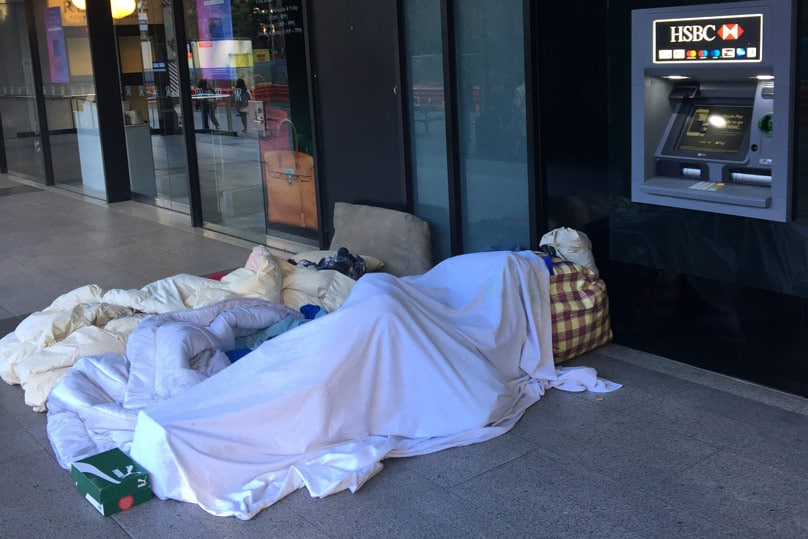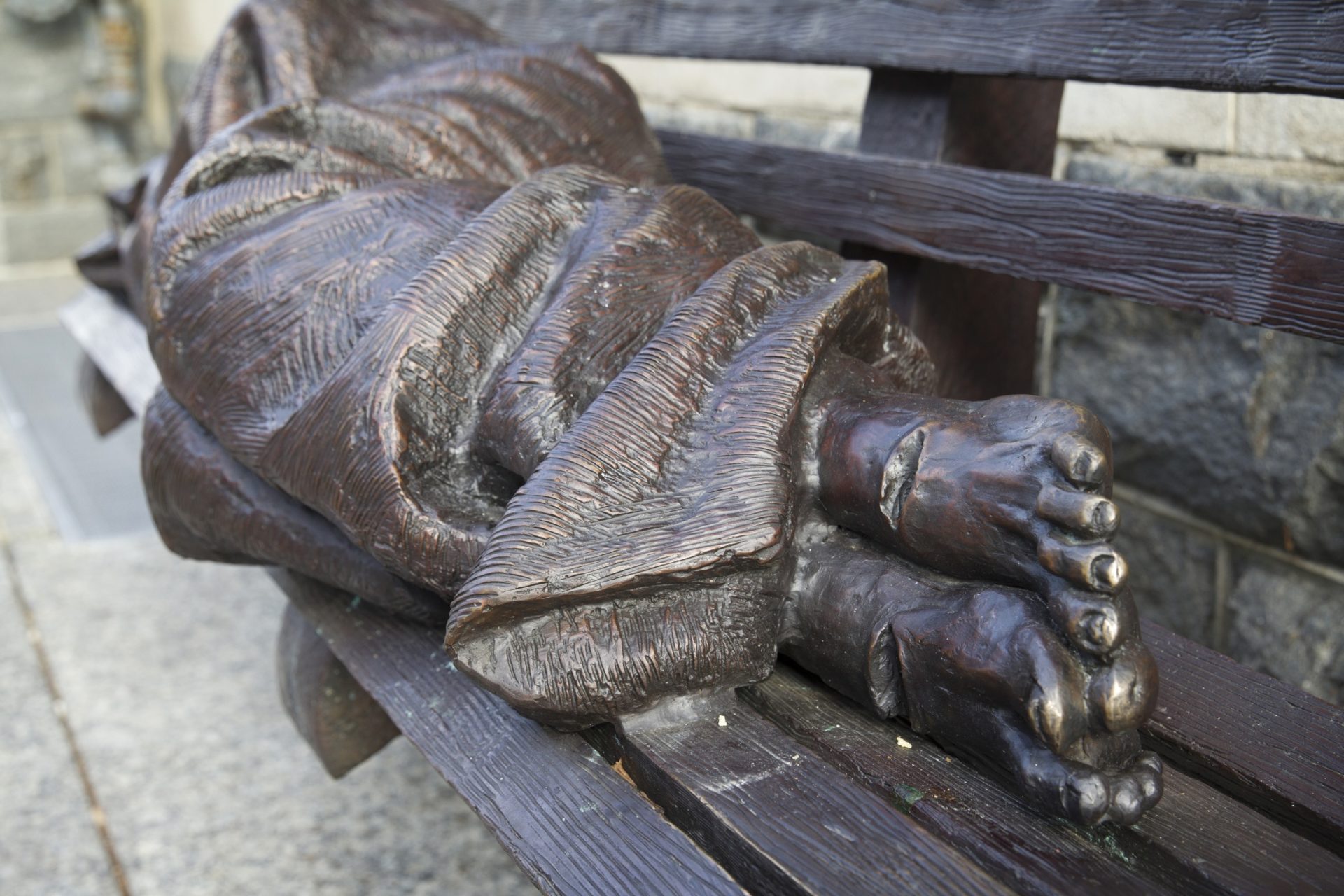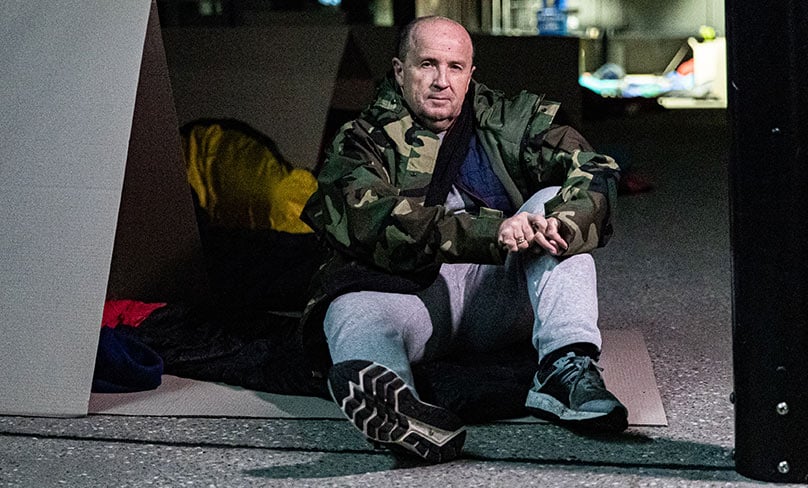
The city’s most vulnerable need to know we care
We recently marked Homelessness Week. At the last census it was estimated more than 116,000 Australians were homeless. Here in Sydney an estimated 1000 people sleep on the street or in crisis accommodation every night.
Today the COVID-19 crisis has led to many of these people in Sydney to be placed in self-isolation in hotel rooms across the city. As effective as that sounds in getting people off the street and protected from the pandemic, it is merely a temporary measure enacted by the NSW State Government to ensure people socially distance.
Homelessness week offers us an opportunity to reflect on the challenges facing homelessness and commit to long-term solutions to address both the immediate need of those sleeping rough and to turn off the taps that lead to homelessness.
in Sydney an estimated 1000 people sleep on the street or in crisis accommodation every single night.
Three years ago CatholicCare, the Archdiocese of Sydney’s social services agency, directed by His Grace, Archbishop Anthony Fisher OP, brought together Catholic social and health services organisations such as St Vincent de Paul, St Vincent’s Health, Catholic Healthcare, the Archdiocese, Australian Catholic University and the Mercy Foundation to form a taskforce with express charge to come up with a plan to end homelessness in Sydney.
And so out of this the End Street Sleeping Collaboration was born.
As Christine McBride, CEO of the End Street Sleeping collaboration has said “without the collaborative efforts of the Catholic social and health services organisations in the formation of a cross-sector taskforce we wouldn’t be where we are today”.

I would like to thank Bishop Terry Brady and his initial concern and care for the plight of the homeless led to the early discussions that eventually formed into this initiative.
I would also like to acknowledge Archbishop Fisher for his early sponsorship and financial support for the project, drawn from his deep care and concern for the homeless.
Very early on, the Taskforce decided to focus our efforts on tackling rough sleeping (otherwise known as street sleeping).
For too long as a society we’ve looked after people on the streets without actually solving the problem, a problem that is actually solvable.
The taskforce adopted the Institute of Global Homelessness methodology, proven in other jurisdictions across the globe. As explained by Ms McBride, “to reach a population of zero sleeping on the street, the existing population of street sleepers needs to be housed with added services in secure social housing that prevent them returning to the street.
“After that there needs to be systems level intervention (including the health, out of home care/family and community services, and justice systems) that ‘turns off the taps’; to stop the flow of people descending into homelessness.”
The City of Sydney, along with a number of the city’s leading homelessness NGOs, have signed a memorandum of understanding to work with the State Government and the Institute of Global Homelessness (IGH) to progress the target of halving street sleeping by 2025 and achieving zero shortly after.

As an agency of the church in the community, we are very interested in our work in meeting unmet need and in following the teaching of the Gospel – to assist the most vulnerable in our society and walking with those homeless in solidarity.
Ending street sleeping meets both of those. It meets an unmet need and it seeks to put some of the most vulnerable people in our community in a better place.
For those on the street the biggest issue is often not actually a lack of food, or a lack of housing, it is actually loneliness and it is a feeling that you don’t belong, that you are outside normal society.
I’d encourage people during Homelessness Week and in the future to say hello to anyone you come across who is homeless.
What is also useful is to go and buy them a cup of coffee, if they want one, as a sign that we care for them. That’s what we would do with friend and that’s what we can do for each other.
Find out more about the Act to End Street Sleeping collaboration and sign up to alerts: www.acttoendstreetsleeping.org
Find out more about CatholicCare Sydney at: www.catholiccare.org
or for help getting help call CCareline on 131819.
Related articles:
